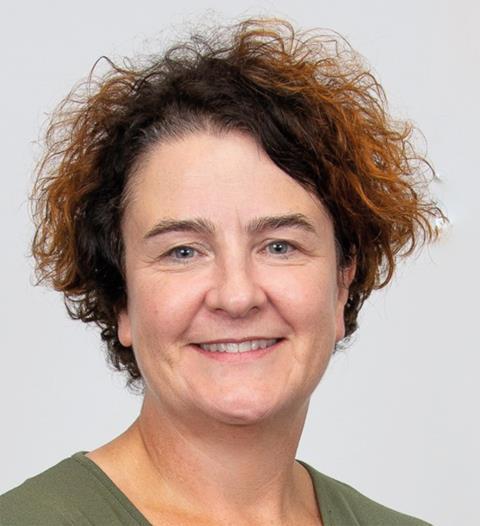Dean of BPP University Law School
I was the first generation in my family to get into university. I went to a very average comprehensive school and my dad was variously a bus driver, a milkman and a forklift operator. It certainly was not my ambition to be a lawyer.

My first love was acting and the theatre. I even took a year out from university to tour with a theatre company. I then worked at the National & Provincial Building Society in various roles after university before deciding a legal career was for me.
I never had one of those epiphany moments. I just saw the work the legal team carried out at the building society and thought it seemed interesting. I was also confident my transferable skills would lend themselves to a career in law.
I did my CPE and LPC at what was then Leeds Metropolitan University (now Leeds Beckett). I had completed a degree in history and politics at the University of Bradford first. I studied full-time, but continued to work part-time at the building society to support myself.
The LPC was in its infancy then. It was a real innovation to have so much skills training compared with the previous Law Society finals.
I completed my training contract at Eversheds in Leeds, qualifying in the real estate team. Having worked at the building society, I already had a background in property and mortgage work. The step into commercial real estate was a natural one. I enjoyed property litigation, where I was part of a team that took a case about an easement to the High Court.
Although that was fascinating, I decided I preferred non-contentious work. I went on to specialise in retail commercial property post-qualification, doing both leasehold management and freehold development work.
'There is nothing quite like the feeling you get when you help students to do well and thrive'
I moved straight from Eversheds to BPP in May 2004. My first role was as a tutor in the new law school in Leeds. I had two young children at the time and was looking for a role that would fit my work-life balance. The moment I moved I knew it was the right decision. I immediately felt at home in higher education.
I don’t get into the classroom very much these days, but I do miss it. There is nothing quite like the feeling you get when you help students to do well and thrive.
I am responsible for the delivery of the law school programmes and the student learning experience. I have to make sure all our students are well-prepared for their legal careers. The law school has a fantastic team, and seeing our students graduate after all of their hard work is always the highlight of the year.
I work closely with external stakeholders, like the SRA and BSB, and law firms and other legal employers to ensure our programmes are relevant for practice. It has been very satisfying to champion legal apprenticeships as a route to qualification and to see our apprenticeship numbers grow exponentially over the past few years.
There’s been a lot of debate around the SQE, particularly its centralised assessment regime. What we effectively now have is a high-stakes memory test covering subject matter that may not be relevant to everyone’s role. There’s an argument this approach isn’t as inclusive for all learners as it should be.
Giving legal education a good shake-up has led to positive consequences. It has given education providers and law firms an opportunity to reflect on what training should look like. At BPP, we have worked with several firms and O Shaped to rebalance a previous overemphasis on legal knowledge to a greater acknowledgement that it is the blend of knowledge, skills and professional behaviours that candidates need in order to be truly desk-ready and able to succeed in the longer term.
The ability to recognise work done across up to four work placements has provided flexibility. Both legal employers and prospective solicitors have the opportunity to gather experience over time, not just in a formal two-year training contract.
I am passionate about the apprenticeship agenda. Professional apprenticeships represent a quiet revolution in law. BPP very much supports the growth in the number of small and medium-sized law firms, local councils, government departments and in-house legal teams using the apprenticeship levy.
Learning while working, and earning a salary at the same time, is lessening the burden of student debt. It is also making the profession more accessible to those from lower socio-economic backgrounds.































No comments yet